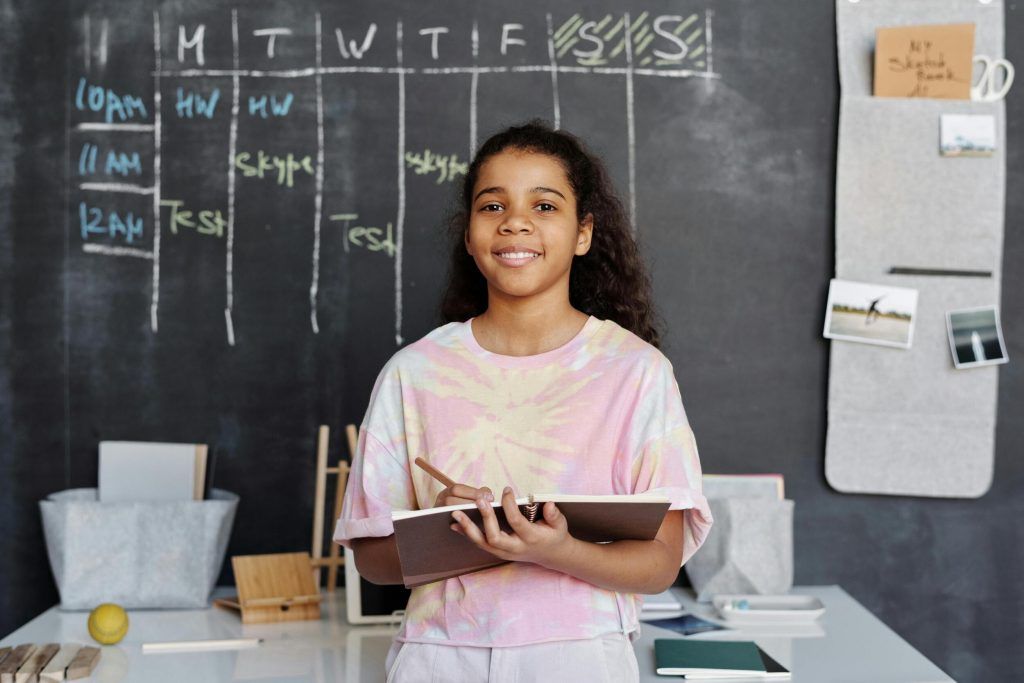Homeschooling, Unschooling, or Deschooling. Which is Better for Your Child?
reviewed by Jo-ann Caballes
Updated on September 27, 2024
Parents who decide to support their child’s learning at home have a wide range of methods to choose from. If you’re thinking about homeschooling, you might as well wonder what unschooling and deschooling are. This article will explore homeschooling, deschooling and unschooling as three pillars of home education and how they can benefit your kid.
What Is Homeschooling?
Homeschooling is a form of education that allows your kid to study traditional school subjects at home. Parents are typically responsible for teaching their kids, so they are free to create a curriculum and choose teaching methods and learning pace. Homeschooling may look different for different families, but it’s important to remember that homeschooling is subject to government regulations and laws.
How does Brighterly help you with homeschooling?
Online math tutoring platforms like Brighterly help your child learn math effectively at home. Again, the options for homeschooling vary from family to family. Parents can choose to teach their kids themselves with the curriculum they create; they can also buy a premade curriculum, start a homeschool co-op, or outsource their teaching by hiring online tutors.
In that case, Brighterly comes into play, offering interactive math lessons, personalized learning plans, expert-driven tutors, and regular progress reports. Brighterly provides flexible lesson scheduling and a high-quality online teaching experience, making it easy to incorporate math lessons into your specific curriculum.
What Is Unschooling?
Unschooling is an alternative method of learning that doesn’t follow a set curriculum and encourages children to learn something they’re specifically interested in. Unschooling recognizes that every kid is different and might need a different approach to learning than a traditional school setting can offer. Such a personalized approach to learning can be quite motivating to students, who might not be happy in school.
Parents often ask if unschooling is even legal. Yes, unschooling is a legal form of education, and it usually falls under the homeschooling category, which is legal in all 50 states. So, if you’re choosing between unschooling vs homeschooling, you should know that, in legal terms, it’s essentially the same thing.
How to start unschooling
Unschooling requires parents to have a different mindset from traditional schooling. Unschooling focuses on child-led learning, so parents have to familiarize themselves with the method first. Next, parents have to research local homeschooling laws, file any necessary paperwork, and submit the required documents. The last phase before unschooling begins is a deschooling process, where your kid transitions from traditional school to homeschooling.

What is the difference between homeschooling and unschooling?
The difference between homeschooling and unschooling is that unschooling focuses on a more relaxed and stress-free approach to learning, where children learn spontaneously without being bound to traditional subjects or settings. Unschooling homeschool curriculum usually involves children learning at their own pace, using real-life experiences and hands-on learning opportunities as the primary means of education.
What Is Deschooling?
Deschooling is a process of transition from traditional school settings to homeschooling. Most families who decide to homeschool will go through this process. It’s a ‘grace period’ that happens after leaving the school system and before starting proper homeschooling. During the deschooling process, both children and parents have to adjust as best they can to the shift from structured, formal education to a more fluid, self-directed learning approach.
Tips for deschooling
To help your kid shift from traditional schooling to homeschooling, it’s important to give them plenty of time to get used to the new conditions. Here are some tips to get your child into the homeschooling frame of mind.
- Find a homeschooling group. It can be an actual facility or a group chat. Whenever you have doubts and questions or need encouragement, other parents can be of help. You can also arrange regular meetings with other parents and kids, to help your kid find new friends.
- Allow you and your child time to decompress. Explain to your young ones that they don’t have to show much academic success during the transition. Deschooling is the time to reset their perspective and rediscover their innate curiosity.
Gary Tucker, Chief Clinical Officer and Licensed Psychotherapist of 10 years at D’Amore Mental Health, emphasizes the importance of some recess before conquering the subjects:
“Kids require some downtime from the regimented atmosphere of a conventional school.”
- Construct a learning-friendly space. Finding a quiet space where your kid can have uninterrupted and creative learning time is crucial for successful deschooling and homeschooling.
- Encourage play time. The deschooling process doesn’t require your kid to ignore their hobbies and interests. Play activities help them gain valuable skills and relax.
- Find your local library. Get to know your local librarian, as you might be a frequent guest at a library. They can also be a great source of information regarding reading programs, lists, and books. Borrowing library books would also work great for family economics.
- Don’t overlook physical activity and bedtime. Letting your kid sleep in from time to time is acceptable, but having the same sleep and wake time every day of the week is highly advisable. Don’t forget to incorporate some physical activity at some point during the day.
Unschooling vs Deschooling
Unschooling and deschooling are educational philosophies that challenge traditional schooling. Deschooling vs unschooling isn’t something you have to put in opposition, as it’s two different phases of the overall homeschooling.

How long does deschooling take?
Deschooling before homeschooling can take different times depending on the child and family overall. Typically, the deschooling transition takes longer if your kid stays in traditional school for several years.
Gary Tucker says that you must give the child one month of deschooling for every year they attend an official school:
“For example, if a child has completed three years of traditional schooling, the deschooling phase should take about three months.”
Conclusion
If you decide to homeschool your child, you have to get familiar with unschooling and deschooling. Each phase is unique and requires you to have an open mind and readiness to assist your kid with transitioning. In order to deschool successfully, you have to allow your child to decompress, separate a good learning space at your house, encourage play time, and find your local library.
In case you need some support along the way, you can always find a trustworthy tutor. Brighterly is a perfect choice for homeschooling parents who might not feel as confident in math as they would like to be.
Book a free demo session now, and see how easy it is to teach with Brighterly!














![Miacademy Cost: All You Need to Know [2026]](https://brighterly-stage.xyz/wp-content/uploads/2025/08/Miacademy-cost-main-360x200.png)
